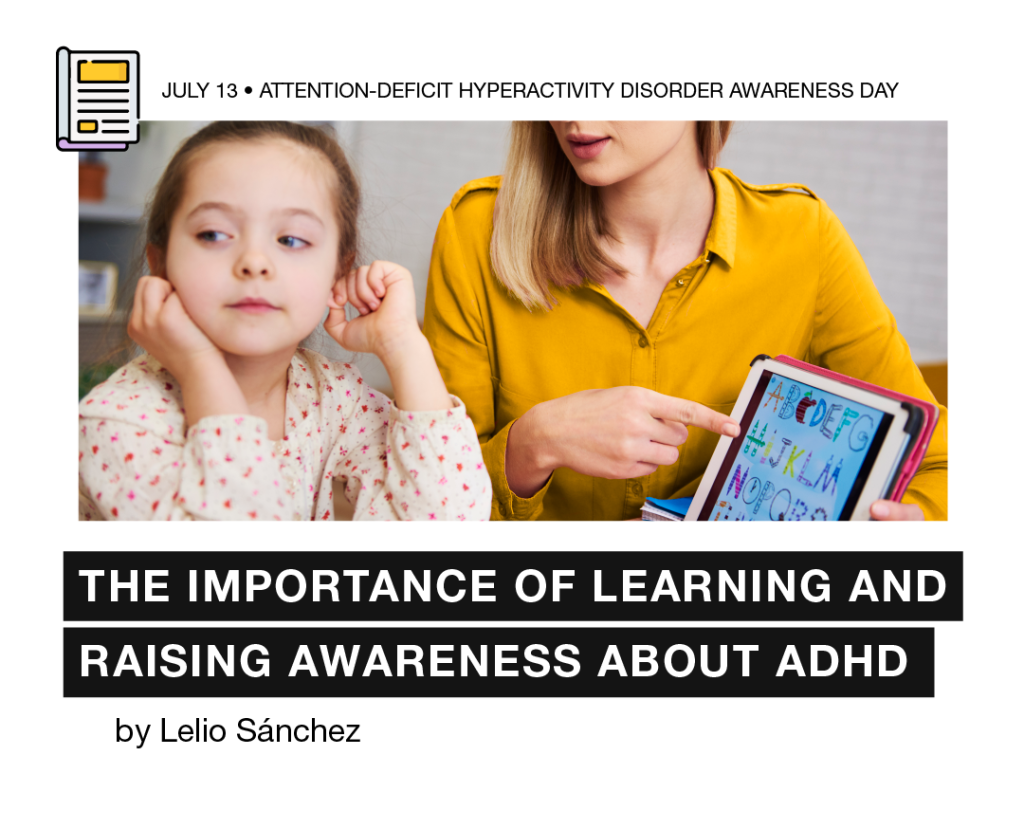In 2012, various professional and family organizations promoted July 13 as the Attention-Deficit Hyperactivity Disorder Awareness Day to inform the community on this disorder, and to raise awareness about their educational, working and health needs.
At Fundación Comparlante, we look for ways to raise awareness about the Attention-Deficit Hyperactivity Disorder (ADHD) which affects 5-10% of the world population.
ADHD is a condition recognized by the World Health Organization understanding that it groups the following cognitive-behavioral markers: poor attention, hyperactivity and impulsivity, or a combination of both. It is worth mentioning that poor attention can be identified separately from hyperactivity and impulsivity. However, hyperactivity is not likely to be separated from impulsivity.
There are three different type of ADHD: the first type in which the lack of attention prevails (it is hard for the person to get organize or to complete a task, to pay attention to details or to follow instructions or conversations); the second one in which hyperactivity/impulsivity prevail (the person may often be fidgety and continuously chattering, the person is unable to stay seated for a long time); and, finally, the one combined (symptoms of the above two types are equally present in the person).
ADHD symptoms have a great impact on the emotional, social, educational, and working life of the person with this disorder, who may need changes or some adjustments to the environment in order to be able to walk along the environmental demands as positively as possible.
An early diagnosis and an appropriate treatment in childhood are key factors to maximize positive results and minimize the negative long-term effects of ADHD in adult life. When ADHD is diagnosed, its consequences shall be felt in all stages of life, especially in the emotional one. Hence, understanding these markers must be a priority for all the people involved.
ADHD treatment aims at helping to control the symptoms (hyperactivity, impulsivity and poor attention), reducing the appearance of related issues, helping the academic adaption, reducing the impact of the disorder in the environment (family, school, social context, and personal life), acquiring basic skills and strategies for an overall optimal functioning, and improving the life quality of the person with ADHD and his/her family.
In addition, on July 28, the Attention-Deficit with and without Hyperactivity Disorder Awareness Day is celebrated in Argentina for the purpose of drawing attention and raising awareness about one of the neurodevelopmental disorders caused by differences in anatomy and brain chemistry.
